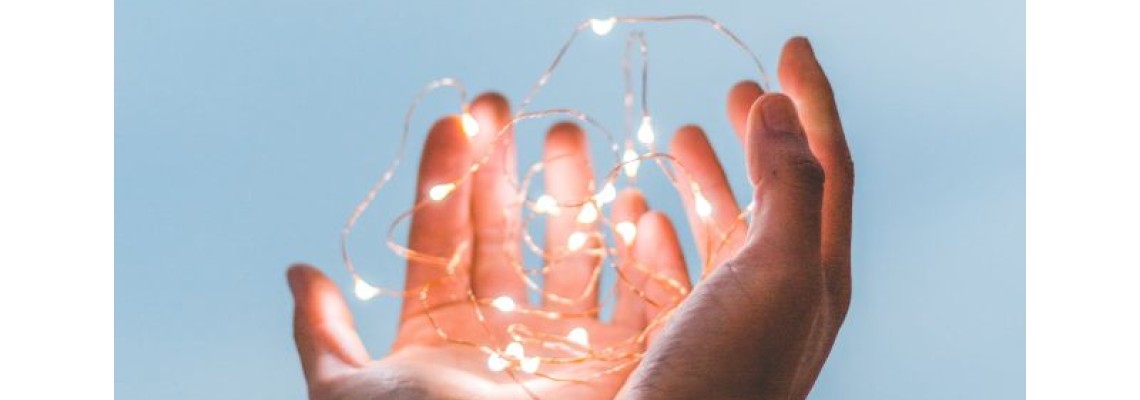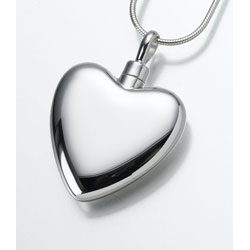SPIRIT OF GIVING: Organ Donation

A special thanks to Kay Christian for sharing her story. This article was lifted from part of the presentation she uses during her educational lectures on the value of organ donation.
My name: Kay Christian
This is my husband of 35 years, Chuck. We have 2 grown sons.
We met on a Thursday afternoon in 1970 a friend of mine introduced us. We were both leaving and going in the same direction so I was in front of him going down Vanderbuilt Rd. At the intersection a man broad-sided me. Of course Chuck came to see if I was ok, since I was pretty shaken up he decided he would follow me home. Being polite I invited him in for coffee. He stayed until about 8:00 PM when he said “ it sure is late and it’s a long way to my house” well he never left. It was indeed love at first sight.
The day after Christmas 2004 he had a mild stroke at home. Test found that the right carotid 99% occluded
Left: 100% occluded. Stints were put in the right side and he did very well, 10 days later a carotid endarderectory was done on the left side, 3 days later he threw a clot and they took him for a CAT scan. He was talking to me when he went in------when he came out he was brain dead and on a ventilator that was January 10th, 2005.
Chuck’s life had been a shining star to so many and as a family we wanted his giving spirit to continue. What greater way to honor, pay tribute to, and to memorialize a loved one than to give a future to someone else.
Even though my sons and I were in our darkest hour, the decision to donate was an easy one, it didn’t take courage or guts, it didn’t take much thought or discussion it only took a simple act of compassion driven by a passion for life.
What greater gift can one person give to another than the gift of life. A little while longer with their husband, a chance to see a grandchild not yet born.
Organ donation is not about a loved one dying-it about a loved one living and giving others a chance to enjoy them just a little longer.
Human organs (heart, lungs, liver, pancreas, kidneys) can only be taken from someone who has suffered brain death in an Intensive Care Unit. Because these patients are on ventilators those vital organ are still receiving oxygenated blood.
Without a blood supply, the organs are quickly damaged and cannot be transplanted. Only about 1% of deaths are brain deaths, that is why there is such a shortage of organs. But everything else is usually suitable for transplant.
The number of people needing transplants continues to rise faster than the number of donor organs.
About 3,700 transplant candidates are added to the National waiting list each MONTH.
Each day Nation wide, about 77 people receive an organ, however 18 people die each day because no organ was available. Currently there are more than 92,000 people on the waiting list.
Most of us think that if we put “yes” on our drivers license that is enough. Many times the patients drivers license cannot be found. It wouldn’t make any difference anyway the decision will ultimately be made by the family. If decisions have not already been made by the donor and the family it often takes hours and sometimes days for a family to reach a decision. This may well be time that some recipients do not have.
Filling out a simple Consent Form and mailing it saves precious time for the family as well as possible recipients. Many recipients are waiting at home for that phone call. Some must fly to the transplant center, some must drive long distances, and all of this takes time. There is also a lot of preparation that must be completed before the donor is ready for organs and other usable body part to be harvested then there is the time to get the recipient ready for transplantation.
How many of you have lost a loved one? Anyone lost a spouse or child? Let me ask you a question. What would you be willing to give to have just one more day with your loved one? If you knew that someone you don’t even know had the power to grant you one more day, one last hug, one more time to say “I love you” What would you say to them?
Just consider the unbelievable opportunity that each of have, not just each of us here, but multitudes of others. You have the opportunity to educate families. To share with them in the most compassionate way what organ donation really means. It means that their loved ones life will indeed go on.
There are three levels of donation:
- Transplantation: ONLY the organs chosen by the family will be harvested and transplanted. The family can exclude any organ they wish, for instance I knew my husbands had heart disease, so I chose for it to be included in his cremated remains that were given to me.
- Research/science/education: Here all body organs, tissue, bone, cells, eyes etc. can be transported and used for medical research and education. The family will receive the cremated remains.
- Gift of Body: The entire body or any part of the body may be given and used to save or enhance the quality of life for as many recipients as possible .
I knew that AOC would forward the letter to the recipient. Then it was up to him to decide if he wanted to communicate.
After a week I anxiously got my mail, always looking first for a letter. A month went by, then two, then three. Sadly, I accepted the fact that he did not wish to know me. But it was April and the donor / recipient picnic was that week-end. I had made a patch for the National Donor Quilt and I decided that I was going to that picnic, I needed to go, I was depressed, and I really needed to go to that picnic.
I arrived, registered at the donor family’s tent, got my lawn chair and sat under a tree……by myself. During the day we pinned the quilt patch, honored the donors and families, recognized the recipients and visited with others. I was still depressed, I had thought that this would bring some closure, some comfort, but it did not. I decided I would finish my coke and leave.
Just then the softest, most gentle hand rested on my shoulder. A man’s voice said “ are you Kay”, I turned to see a man, a woman, three young women and a little baby girl.
I stood and said “yes, I’m Kay”. The man then lifted his shirt and said to me, would you like to come and embrace your husband.
The rest of the day was filled with gallons of tears, This man and I held hand for the next two hours. Without question this was the turning point in my grief process, I was ok, Chuck was ok, Jim was ok, and I was ecstatic.
Just a few short month earlier in January, Jim Gambol, the father of three daughters, husband and soon to be grandfather for the first time… lay critically ill at his home in Atlanta, he was in liver failure. His beautiful wife, of 39 years, Alana, would have given her life to save his, but that wasn’t possible. Jim had been waiting on an organ much too long. His first grandchild, a baby girl was due in three weeks, but he was told that he only had about a week to live. He had accepted that he was going to die.
But today we both have a wonderful new extended family we have visited each other and talk or email a couple of times a week. The love affair that I shared with my husband of 35 years is renewed every time I talk, see or even think about Jim Gambol and his family. What greater peace could I have than to know that my loved one is not gone……..for he has given another wife, her husband back, their children a healthy dad, and a grandbaby a grandfather she would have never known.
I’m sure you all have seen or heard a lot of information about people that are waiting on organs, AOC has a wonderful ad that introduces the public to many who are on Alabama’s waiting list.
But little is said about the donor families. How did they feel after the decision was made to donate, did they every question that decision, did they ever regret donating? What impact do they feel the decision had on the grieving process it Were their family members against donating, and if so how do they feel now?
If these questions were answered before the time to make a decision, then families would not have to “think about it”. But these subjects are not included in any of the publication, or ads or in any of the public presentations. Why do you think that is?
It’s because no one has ever taken the time to contact families, and ask these questions. Maybe they feel that the family doesn't need to be bothered. It’s certainly not because they don’t care, quite the contrary, the staff at AOC are some of the most knowledgeable, compassionate, caring people I have ever met.
So I am on a mission, a mission to include the stories of donor families as part of the information available.
As nurse managers, educate your staff, your families and your friends. Patient either LIVE or DIE depending on weather or not someone else is willing to be a donor. Be pro-active in helping them make the right decision. Be sure they understand how wonderful it is to KNOW that they have chosen to given life to someone else.
Organ donation is a beautiful gift but a deeply personal choice that the family will have make. The gift of organ donation can save the lives of hundreds of people on waiting lists. For more information on this topic, one of our client families shared her experience when she made the decision to donate the organs and tissue of her husband.
Why Sign a Donor Card?
- About 70 people get transplants daily
- An average of 16 die daily due to lack of organs available.
- 5669+ transplants were performed in 2004
- Most needed organ:
- Kidney. Over 60,018 people are waiting.
- You can become a donor at any age.
- Donors’ families pay nothing.
- You can indicate your wishes to give the gift of an organ:
- Sign the back of your driver’s license, or getting a donor card at www.organdonor.gov
- Be sure to share your wishes with your family and friends.
- You can also become a living donor:
Find a place to donate at www.unos.org

